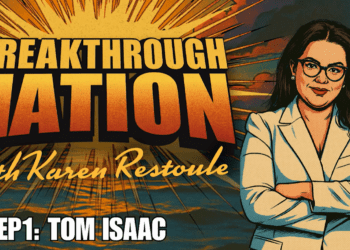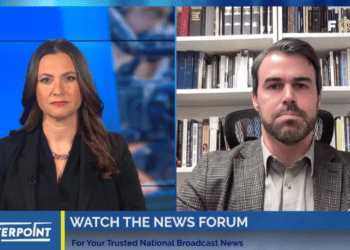September 13, 2011 – In today’s National Post, MLI author Scott Newark evaluates Canada’s corrections and parole systems in dealing with repeat offenders. The op-ed (below) is based on the latest instalment in MLI’s newest series, Straight Talk.
Newark also appeared on a number of shows to discuss this topic. He appeared on CKOM’s John Gormley Live in Winnipeg, Newstalk 1010’s The Live Drive with John Tory in Toronto, CFAX’s David Dickson Show in Victoria, and the Dave Rutherford and Roy Green show in Alberta. In addition to this, he also appeared on Byline with Brian Lilley on Sun News Network.
How to fix Canada’s parole system
National Post, September 13, 2011
By Scott Newark
Canadians have rightly been gripped by the plight of the Hebert family of Sparwood, B.C. whose 3-year old son was abducted, with Randall Hopley, a convicted sex offender and career criminal, the prime suspect. While Kienan Hebert has thankfully been returned home safely, this incident, along with other high-profile crimes committed by repeat offenders, illustrate clear deficiencies in the justice system that require immediate attention.
Dealing effectively with crime is an inherently complex issue in part because of the number of independent institutions within the justice system, such as the police, prosecution, courts, corrections and parole boards, all of which need to c0-ordinate their efforts to support public safety.
These institutions already treat dissimilar individuals, such as young offenders, in different ways. For example, there is a concerted effort to use proactive steps to try to prevent young people from getting involved in crime, and even when they do, we sensibly use more lenient measures to provide alternatives and life structure so that young people make better choices and stop committing crime. If early intervention and youth-specific strategies can get young offenders back on the path to productive, law-abiding lives, without burdening the taxpayer with the financial and social costs of incarcerating them, all Canadians will be better for it.
But one of the grim realities confronting our justice system is that a disproportionately large volume of crime is committed by a disproportionately small number of repeat offenders. The justice system has tools to deal with these sorts of individuals, including long-term imprisonment where, at best, correctional programming can build positive behavioural changes and, at worst, the simple expedient of incarceration eliminates their criminal potential for that time in custody. The length of imprisonment for most crimes is determined by a sliding scale that considers both the severity of the crime and the criminal’s unique characteristics, including criminal history.
Unfortunately, the reality of the prevalence of repeat offenders in crime is not reflected in our current parole eligibility laws. Specifically, offenders that have repeatedly committed crimes while on parole are still eligible for parole at the same time as a first offender. This disjointed, “one size fits all” approach undermines the collective goal of increased public safety through reduced crime, especially when it comes to repeat offenders.
The Harper government has made significant improvements to support the integrity of the corrections and parole system by permitting longer parole ineligibility for multiple murderers, eliminating advanced early release for murderers and removing parole eligibility for those who have completed only one-sixth of a court imposed sentence.
Hopefully, with a majority mandate and an unmistakable commitment to public safety, the government will now address repeat offender parole reform. The recommendations offered below would be a good start.
First, convert statutory release into earned parole. Currently, offenders have a presumptive right of release (with rare exceptions) after not more than two-thirds of their sentence no matter how often they broke the law or breached parole. Parole must be a privilege to be earned, not a right to be demanded on a predetermined schedule.
Second, legislate escalating future parole ineligibility consequences for people who commit crimes while on parole.
Third, breaching parole conditions should itself be a crime that Correctional Services of Canada (CSC) and the Parole Board of Canada (PBC) are required to take into account in making their decisions.
Fourth, the CSC and PBC should be required by law to consider the availability of post-sentence supervision for high-risk offenders in making their decisions.
Fifth, the Parole Board should be authorized to order electronic monitoring of high-risk parolees.
Sixth, a public analysis of correctional programs to measure re-offending impact should be undertaken with resources re-allocated to more effective programs.
Seventh, the government’s platform in the last election included an attempt to create a drug-free environment in prisons. This is a huge challenge, but would pay enormous dividends. Though our expectations for success must be realistic, it should still be pursued.
Eighth, the Immigration Refugee Protection Act and the International Transfer of Offenders Act should be amended so as to expedite the removal of non-citizen criminals convicted of crimes in Canada.
Implementing these eight recommendations will yield immediate, meaningful, and real public safety dividends for our country and its citizens.
Scott Newark is a former Crown Prosecutor and author of several studies on crime, including the recent Why Canadian crime statistics don’t add up, released by the Macdonald-Laurier Institute. The full report on the way forward for Canada’s parole system can be found here.




